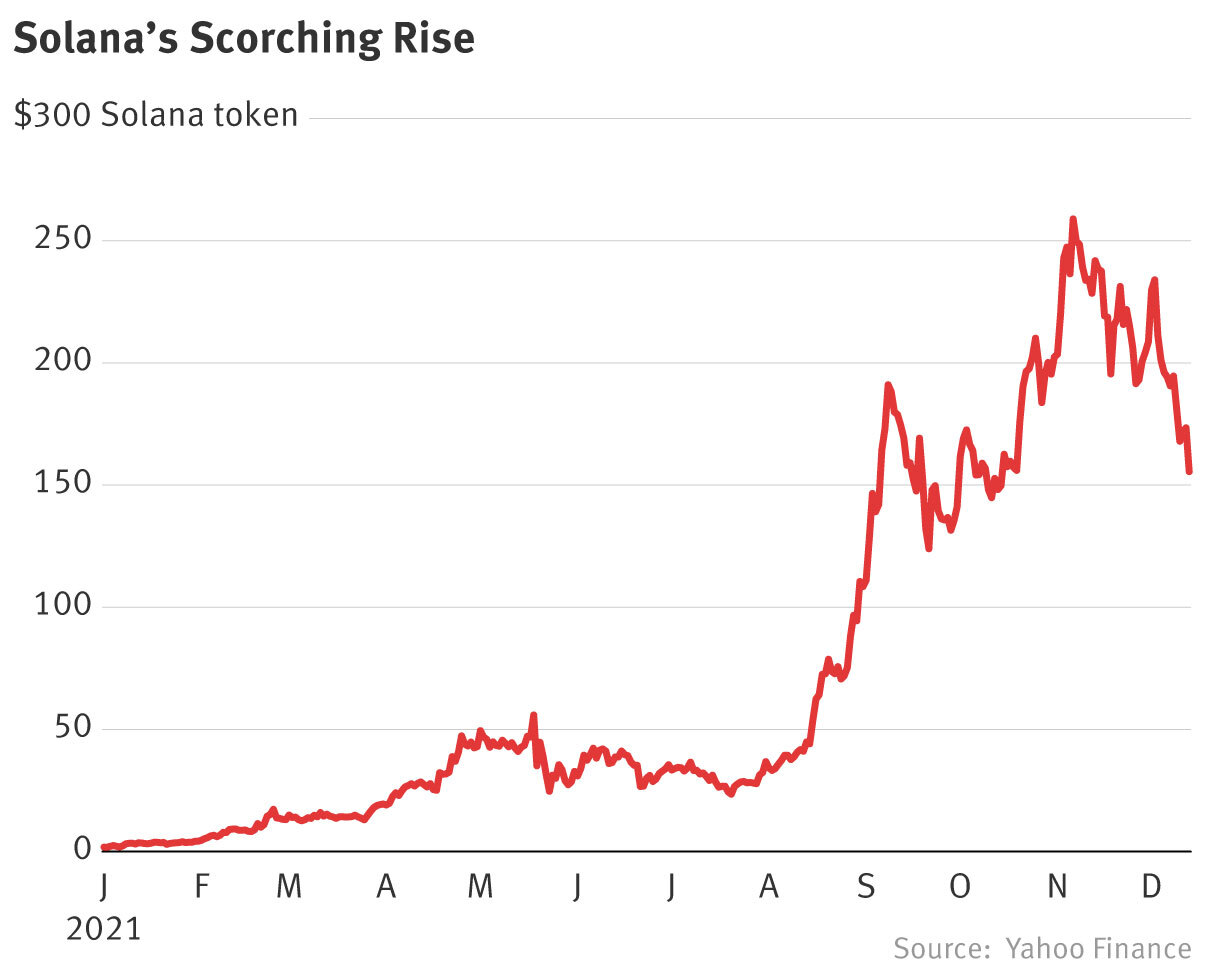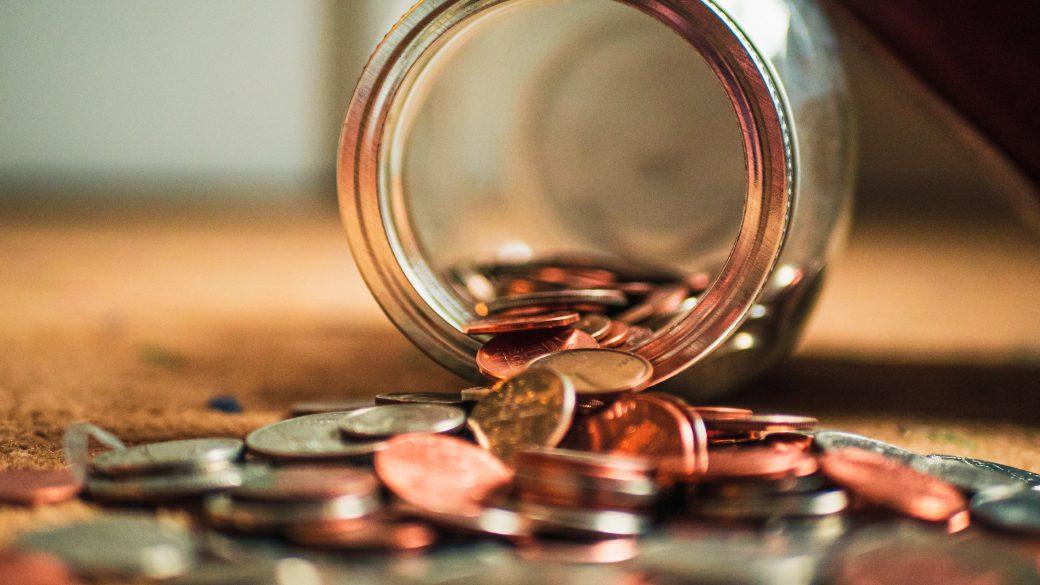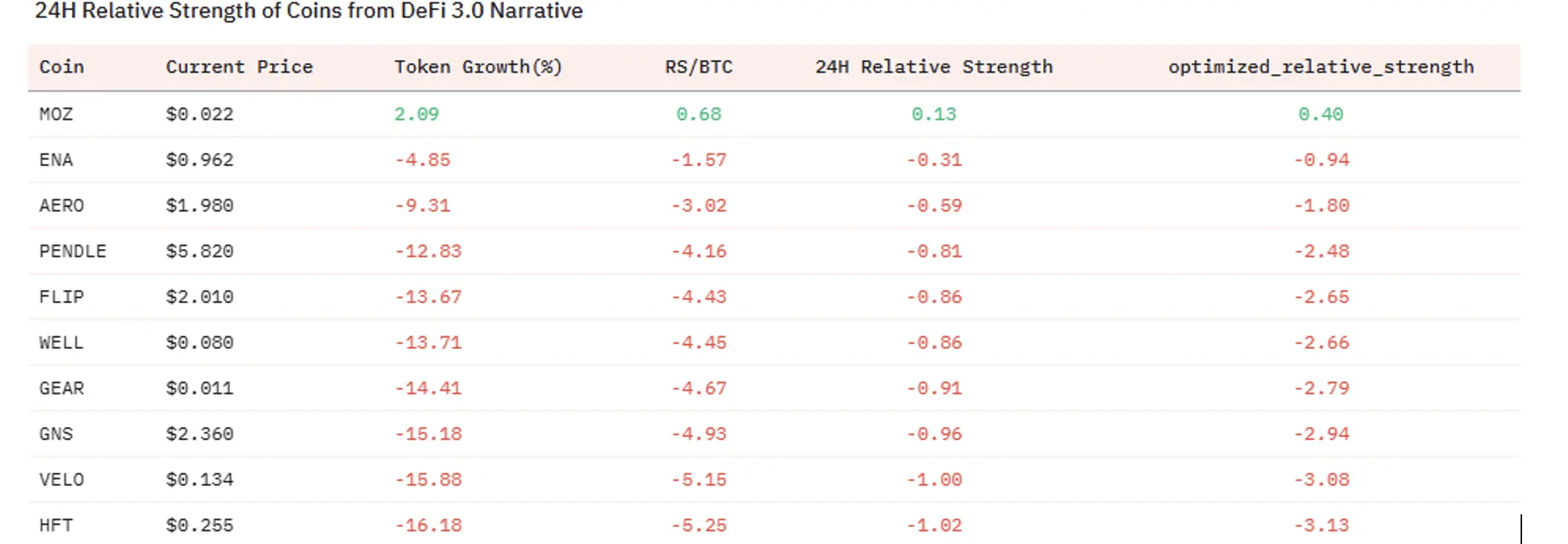Those investors who bet on Solana in 2018: Many have stated they still hold it, with returns exceeding $1 billion
Author: Hannah Miller, The Information
Compiled by: Richard Lee, Chain Catcher
When Solana Labs CEO Anatoly Yakovenko tried to raise funds for his idea (a faster blockchain network) in 2018, Bitcoin prices were plummeting, and investors were skeptical about blockchain startups. Later, the former Qualcomm engineer convinced a friend he met while playing underwater hockey to become an early investor. This swimming partner then introduced 41-year-old Yakovenko to two other investors.
Later that year, the five co-founders of Solana Labs sold 79.25 million tokens at $0.04 each to help the startup develop the Solana blockchain. Some early token buyers, including founders of Multicoin Capital, 500 Startups, and Race Capital, reaped enormous profits from these early token sales, with some returns reaching $1 billion.
Today, the value of Solana tokens is approximately 4,300 times its initial sale price. The surge in prices of tokens like Solana explains why traditional venture capital firms like A16z and Sequoia Capital are willing to change their legal structures to hold more digital assets. Here’s how Solana's early supporters achieved one of the most remarkable successes in crypto investment.
According to CoinMarketCap data, the SOL token is now the fifth most valuable token in the world, with a total market capitalization of about $50 billion. Solana Labs has sold a total of 307 million SOL tokens. This token financing helped propel the growth of the startup and the development of the blockchain network.
After the blockchain network proved it could achieve faster transaction processing speeds, the price of Solana tokens continued to rise. Solana claims its blockchain can handle 65,000 transactions per second, while Ethereum can only manage 15.

As the number of projects built on Solana surged, the value of SOL tokens rose from $1.61 at the beginning of the year to $170 on Friday, an increase of about 105 times.
When Yakovenko first introduced investors to the vision of a "blockchain running at Nasdaq speed," such returns were still far off. In a white paper released in November 2017, Yakovenko proposed the concept of using a "proof of history" consensus mechanism to make the blockchain run faster and more efficiently than Ethereum and Bitcoin. The "proof of history mechanism" synchronizes the time of transaction validators. Part of this idea was inspired by his work at Qualcomm, as well as the ability of mobile phones to share the same frequency when connecting to cell towers.
In 2018, Yakovenko formed a team with two former Qualcomm engineers, Greg Fitzgerald and Stephen Akridge, along with former Omada Health data science head Eric Williams and former health startup co-founder Raj Gokal.
Here are some early backers of Solana:
1. David Quiec
This angel investor purchased tokens at $0.04 each during Solana Labs' first token sale. He still holds these tokens today.
David Quiec has held Bitcoin since 2014. Yakovenko played for the underwater hockey team Club Puck in Menlo Park, California, and approached David Quiec after a scuffle, who was intrigued by Yakovenko's idea.
Yakovenko had previously mined Bitcoin himself but forgot the private key. It was this person who wanted to tell Quiec about a potential alternative.
"I clearly remember him coming out of the pool, probably saying, 'Hey, I'm doing my own blockchain,'" Quiec said. He is now a partner at the marketing firm Enginefish.
The idea of the proof of history mechanism was somewhat beyond his understanding, but he was always impressed by Yakovenko's intelligence, which gave Quiec enough confidence to buy the tokens. "I basically agreed to him the moment he told me," he said.
2. Edith Yeung, 500 Startups
This venture capitalist purchased $250,000 worth of tokens, which are now worth $1.1 billion, yielding a return of 4,400 times.
Quiec also introduced Yakovenko to Edith Yeung—partner at early-stage venture fund 500 Startups.
In December 2017, Yakovenko saw Yeung discussing cryptocurrency fundraising at the Nasdaq Entrepreneurial Center in San Francisco and asked Quiec, who was then advising 500 Startups, to make the introduction. In January 2018, Quiec introduced the two via email.
Yeung said she was interested in Yakovenko's blockchain plan because it was different from other crypto projects that focused solely on making money through initial coin offerings.
During the seed round sale, Yeung invested $250,000 in Solana through 500 Startups' $10 million Mobile Collective fund, purchasing SOL tokens at $0.04 each. As of Friday, this amount is equivalent to $1.09 billion, with a three-year return of 4,400 times. Most LPs have held onto their SOL, but some have sold tokens at slightly discounted returns.
The crypto investment brought a twist: Yeung had to modify her agreements with the fund's LPs. Instead of using a simple future equity agreement, she invested through a simple future token agreement. She said it was "a whole new jargon I had to learn."
This investor's experience foreshadows the actions that more venture capital firms are taking today: changing their legal agreements with limited partners to accommodate investments in tokens, as Initialized Capital has done. Additionally, companies including Andreessen Horowitz and Sequoia Capital have given up their venture capital exemptions from certain securities rules by becoming registered investment advisors. In this role, they incur higher compliance costs and reporting requirements to hold more cryptocurrencies.
Yeung co-founded Race Capital in 2019 with old friend Chris McCann. She said she told the limited partners (LPs) of 500 Startups that she did not want them to sell their tokens. She believes the value of the tokens will continue to rise.
"Solana could be the foundational layer for DeFi," she said.
3. Vinny Lingham, Multicoin Capital
The firm led a $20 million Series A round for Solana in 2019, which was all the funding raised through token sales in 2018-2019. Multicoin Capital holds at least $780 million worth of tokens.
In 2018, Quiec also introduced Multicoin Capital general partner Vinny Lingham to Yakovenko. This cryptocurrency-focused venture capital firm purchased tokens at $0.04 and $0.20 in July 2018 and 2019, respectively, when the price of SOL was $0.23.
"When you find someone who has already written code that will run on billions of phones and optimize transaction speed—this (investment) is obvious," Lingham said. He is also a co-founder of DeFi compliance startup Civic.
The firm stated that it prefers to invest in tokens rather than equity in startups. Multicoin co-founder Kyle Samani tweeted in November that it holds at least $1 billion worth of SOL tokens across its various funds, with each SOL priced at about $218 at that time (as of Friday, the value of the firm's holdings is at least $780 million). The firm also acquired SOL tokens held by other early investors in Solana, expanding its SOL holdings.
4. Chris McCann
Chris McCann invested less than $250,000 in the initial token sale, and his SOL holdings are now worth up to $1.01 billion, yielding a return of 4,400 times.
Chris McCann met Yakovenko at a social event hosted by Greylock Partners, where Yakovenko had little to show beyond the white paper.
"No product," McCann said. He previously handled networking events at the venture firm. "No PPT, no code written, you could say there was nothing."
However, McCann was very interested in how Yakovenko's experience in data storage and communication could help him design Solana. Yakovenko worked at chipmaker Qualcomm for nearly 13 years. In 2016, he left a startup and then worked at Dropbox.
"He has an extremely unique perspective on how to scale blockchains and crypto networks, far outside the mainstream," McCann said.
He said he invested in Solana when the token was valued at $0.04, costing less than $250,000. Today, that amount is worth $1.01 billion, equivalent to a return of 4,400 times. McCann later left Greylock in 2019 to found early-stage venture firm Race Capital. McCann stated that he has not sold any tokens.
5. Sam Lessin, Slow Ventures
Sam Lessin purchased SOL at $0.04 and $0.23, refusing to disclose the specific amounts. The investment return is 5,700 times.
Sam Lessin is an old acquaintance of Solana Labs co-founder and COO Gokal. The former Facebook vice president attempted to recruit Gokal for a product manager position before leaving social media in 2014 but was unsuccessful.
After discussions with Gokal, Slow Ventures made multiple rounds of investments in Solana, with costs ranging from $0.04 in 2018 to $0.23 in a 2019 funding round. Lessin declined to disclose the total investment amount but stated that Slow Ventures has achieved a return of 5,700 times from Solana over approximately three years.
According to PitchBook, other early supporters of Solana include NGC Ventures, Rockaway Blockchain Fund, and Zee Prime Capital.
After the token sale in 2018, Solana conducted a round of sales in July 2019 at $0.23 to investment firms including BlockTower Capital, Foundation Capital, and Blockchange Ventures. Last year, it continued to sell tokens at $0.25 or lower.











